Creative Commons (CC BY-NC-ND) 4.0 license
Except where otherwise noted, content on this site is licensed under a Creative Commons Attribution-NonCommercial-NoDerivatives 4.0 International License.
Such a licensing model allows journal editors, anthologists, scholars, students, critics, bloggers and any other readers to quote, copy and redistribute the licensed material in any medium or format under the following terms:
- Attribution — You must give appropriate credit, provide a link to the license, and indicate if changes were made. You may do so in any reasonable manner, but not in any way that suggests the licensor endorses you or your use.
- NonCommercial — You may not use the material for commercial purposes.
- NoDerivatives — If you remix, transform, or build upon the material, you may not distribute the modified material.
- No additional restrictions — You may not apply legal terms or technological measures that legally restrict others from doing anything the license permits.
-
Adélékè, Barnabas Ìkéolúwa
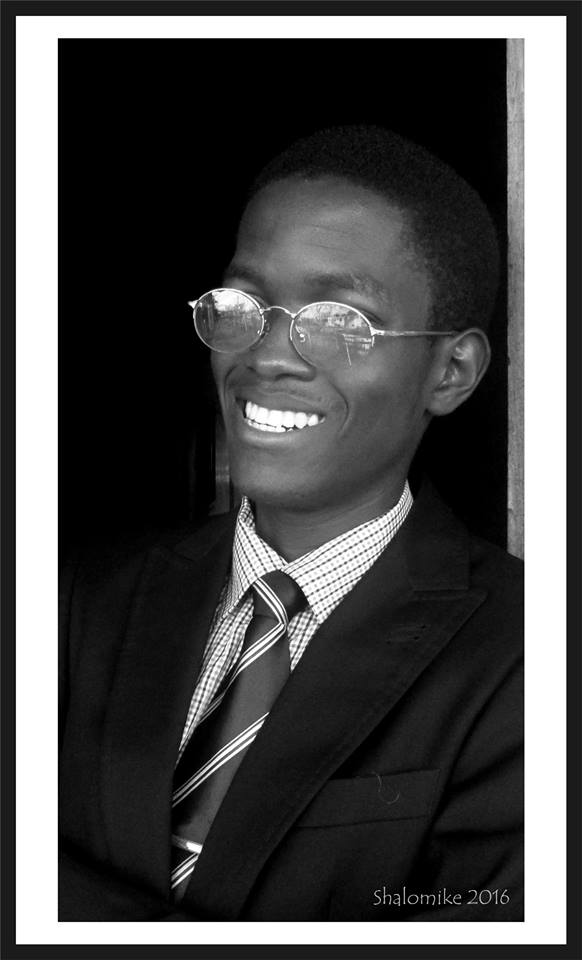 Barnabas Ìkéolúwa Adélékè
Barnabas Ìkéolúwa AdélékèBorn 1990 in Okuku, Osun State, Nigeria
Living in Ile-Ife, Osun State, Nigeria.Apart from writing haiku, Barnabas is an artist who majors in realism. He hopes to be one of Africa’s best hyperrealists in the nearest future and a renowned haiku poet. He is currently studying to bag a degree from a Nigerian University.
For biographical information on Barnabas Ìkéolúwa Adélékè, see the Haikupedia article: https://haikupedia.org/article-haikupedia/barnabas-ikeoluwa-adeleke/
-
Adow, Kwaku Feni
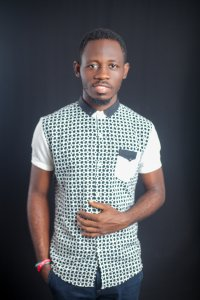 Kwaku Feni Adow
Kwaku Feni AdowBorn 1988 in Atonsu-Nsuta, Ghana.
Living in Akosombo, Ghana.Kwaku is a writer, poet, teacher and student from Ghana, currently pursuing a degree in one of the country's University. He describes himself as a lover of literature and music.
Blog: https://witwriteblog.wordpress.com
For biographical information on Kwaku Feni Adow, see the Haikupedia article: https://haikupedia.org/article-haikupedia/kwaku-feni- adow/
-
Agyei-Baah, Adjei
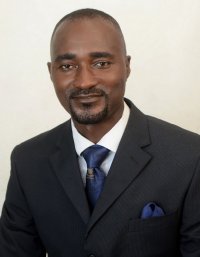 Adjei Agyei-BaahBorn 1977 in Kumasi, Ashanti Region, Ghana
Adjei Agyei-BaahBorn 1977 in Kumasi, Ashanti Region, Ghana
Living in Kumasi, Ashanti Region, Ghana
Adjei, is an English language lecturer and the co-founder Africa Haiku Network and Poetry Foundation Ghana. He doubles as the co-editor of the Mamba Journal, Africa’s first haiku periodical and champions an avant-garde type of haiku dubbed “Afriku”, which seeks to project the unique sights, sounds, and settings of Africa. He discovered haiku through his fellow countryman, Nana Fredua-Agyeman and tasted his first journal publication with Shamrock in 2011.
Contact the poet
For biographical information on Adjei Agyei-Baah, see the Haikupedia article: https://haikupedia.org/article-haikupedia/adjei- agyei-baah/ -
Alkerton, Michelle V.
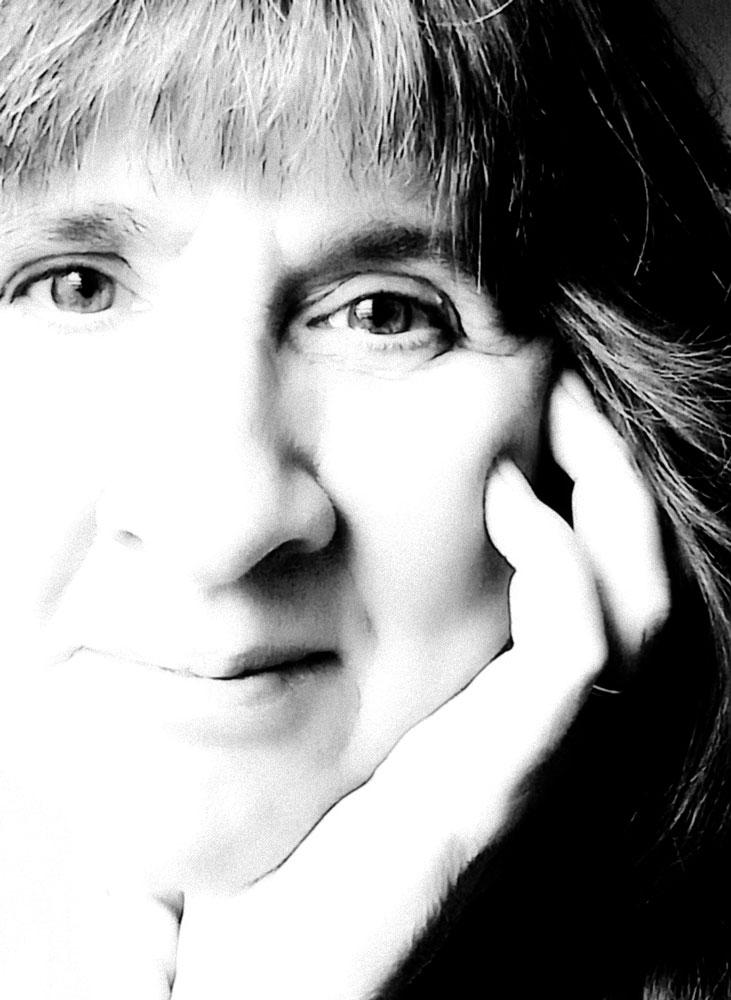 Michelle V. Alkerton
Michelle V. AlkertonBorn 1965, Canada
Living in Cambridge, Ontario, Canada
Michelle V. Alkerton (formerly Lohnes) is an internationally published poet who cannot contain her excitement when inspired. She thrives best when close to nature and enjoys the therapy her writing, art, photography and other creative outlets provide. She is pleased that her English language haiku and related forms continue to be published in both print and online journals.
-
Anand, Ramesh
Ramesh Anand
Born 1980 in Tanjore, India
Living in Bengaluru, India
http://haikuramesh.blogspot.in
Contact the poetRamesh Anand resides in Bengaluru and works as a NPI Manager for Philips. His short forms have appeared in 16 countries and translated to 8 foreign languages. His latest awards are international first prize in 19th Mainichi and Magazine IRIS international haiku 2015 contests, and Akita Sakigake Shimpo President Award.
-
Andrelczyk, Mike
Mike Andrelczyk
Born 1982 in Lancaster, Pennsylvania, USA
Living in Strasburg, Pennsylvania, USA
Contact the poet -
Apanius, Dawn
Dawn Apanius
-
Ashagawa, Bukusai
Bukusai Ashagawa
Born in Boston, Mass, and lives in Chatanika, Alaska. He’s written over 14,000 haiku, tanka, & haiga. His books can be found in the National Haiku Library, and over fifty Universities throughout the U.S.A. & Japan. His works been translated into six languages.
"Haiku are meant to evoke an emotional response from the reader... to light the spark that triggers creative rumination... They act as literary manifestations... visions of nature’s seasonal modulations... They're emotionally tinged words, barely perceptible sensory flickers... literary etchings of lucid visions transposed into the minds of its readers... They're meant to act as sensory catalysts... like the passing of a penciled baton laid out upon a piece of paper that a reader might grasp for in their mind's eye... all of which prompts the reader to continue exploring the sensory experience elicited from the writers pen... This is how the literary sketching of poets are intended to function... as creative muses with which readers can draw from and viscerally apply to their own artistic idioms... from that lucid space within their heads... where their minds eye can spark their own creative visions" -- Bukusai Ashagawa, 2013
Blog: Bukusai-Ashagawa.blogspot.com
-
Ashbaugh, Marilyn
 Marilyn Ashbaugh
Marilyn AshbaughBorn 1954, South Bend, Indiana, USA
Current residences: Edwardsburg, Michigan, USA; Gulfstream, Florida, USA
Marilyn Ashbaugh is a poet, organic master gardener, and nature photographer. She makes her summer home in a small village near the shores of Lake Michigan, USA.
For biographical information on Marilyn Ashbaugh, see the Haikupedia article: https://haikupedia.org/article-haikupedia/marilyn- ashbaugh/
-
Ashwell, Joanna
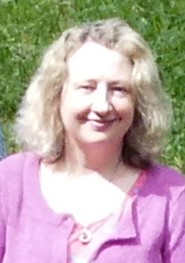 Joanna Ashwell
Joanna AshwellBorn in Barnard Castle, United Kingdom
Living in Co Durham, United KingdomJoanna Ashwell is a short form poet who writes Haiku, Tanka, Haibun, Cherita and other related forms. She has published four collections of poetry. Between Moonlight a collection of haiku was published by Hub Editions in 2006. Her tanka collection Every Star was published by KDP on Amazon in 2023. Her Cherita collection River Lanterns was published by 1-2-3 Press on Amazon in 2023. She currently serves on the selection team for the Canadian Tanka Journal GUSTS.
-
Ayeyemi, Taofeek
Taofeek Ayeyemi
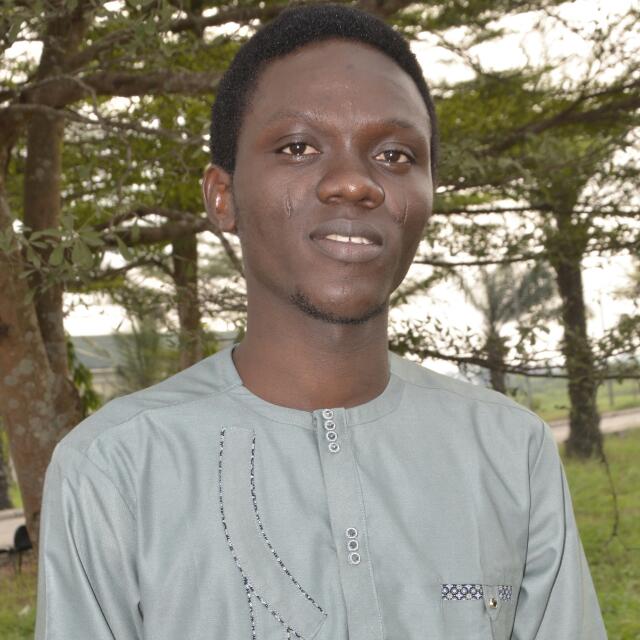 Born 1991 in Sango, Ogun State, Nigeria
Born 1991 in Sango, Ogun State, Nigeria
Living in Port Harcourt, Rivers State, Nigeria
Email:This email address is being protected from spambots. You need JavaScript enabled to view it. Taofeek Ayeyemi, a Nigerian lawyer and writer with works appearing or forthcoming in Lucent Dreaming, Ethel-zine, the QuillS, Modern Haiku, Akitsu Quarterly, contemporary haibun onlineet al. won Honorable Mention Prize in 2020 Stephen A. DiBiase Poetry Contest, 2019 Morioka International Haiku Contest and 2nd Prize in 2016 Christopher Okigbo Poetry Prize.
-
Babusci, Pamela A.
Pamela A. Babusci
Born1950 in Rochester, New York, USA
Living in Rochester, New York, USA
Contact the poet -
Bailey, Stephen
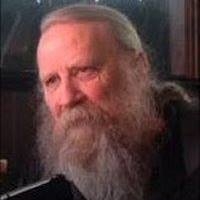 Stephen Bailey
Stephen BaileyBorn 1949 in Ararua, Aotearoa/New Zealand
Living in Ōtaki, Aotearoa/New Zealand
http://parallelpoems.com
Contact the poet
Hear the poet reading
-
Baird, Don
 Don Baird
Don BairdBorn 1947 in Denver Colorado, USA
Living in Palmdale, California, USA
http://www.kungfukarate.com
Hear Don reading a selection of his haiku
Contact the poet
-
Balabanova, Ludmila
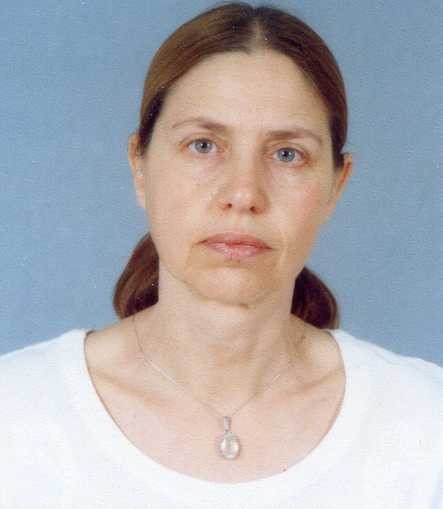 Ludmila Balabanova
Ludmila BalabanovaBorn in Novi Pazar, Bulgaria
Living in Sofia, Bulgaria
-
Balistreri, Mary Jo
 Mary Jo Balistreri
Mary Jo BalistreriBorn in Duluth, Minnesota, US, 1941.
Living today in Waukesha, WI USJo Balistreri began her creative life as a pianist and harpsichordist. In 2005, she began writing free-verse poetry after losing her hearing and her ability to play music, and in 2015 registered for a mentoring program through the Haiku Society of America. She has since published widely and in 2019 was included in A New Resonance 12. http://maryjobalistreripoet.com/
-
Baranski, Johnny
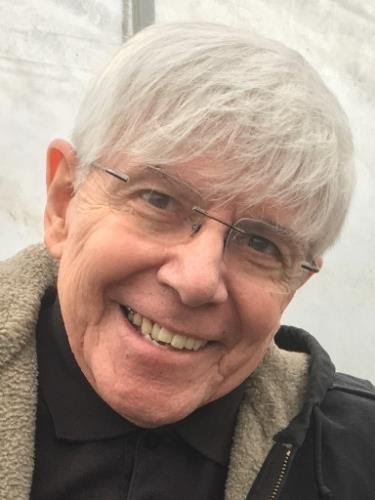 Johnny Baranski
Johnny BaranskiBorn 1948 in Chicago Illinois, USA
Died 2018 in Vancouver, Washington, USAA memorial tribute to Johnny Baranski is archived on the Haiku Northwest website
You may listen to the poet reading these poems here
-
Barouch, Valeria
Valeria Barouch
Born 1951 in Zug, Switzerland
Living in Cologny, Switzerland
http://www.quettar-orenyallo.ch/ -
Bays, Christopher
 Christopher Bays
Christopher BaysBorn 1961 in Otterbach, Germany
Resides in Beavercreek, OhioProfessor of English at Clark State College in Ohio. In 2021 Red Moon Press published edge of suburbia, Chris’ first book of haibun, haiku and monoku.
EmailThis email address is being protected from spambots. You need JavaScript enabled to view it.
Website: http://chrisbayspoetry.com/
-
Ben-Arroyo, Abraham Freddy
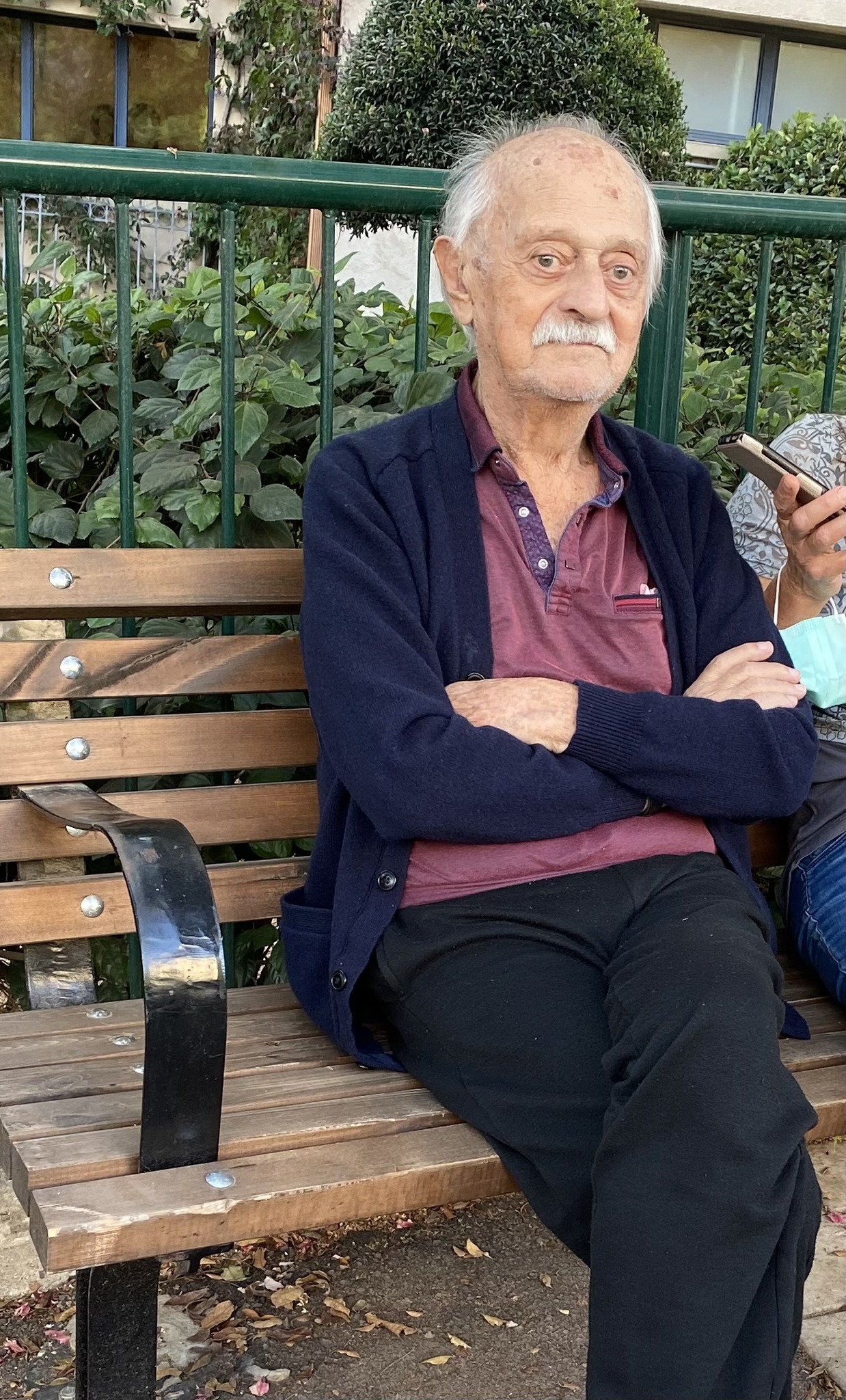 Abraham Freddy Ben-Arroyo
Abraham Freddy Ben-ArroyoBorn 1924 in Sofia, Bulgaria
Lived in Haifa, Israel until his death in July 2025His book Jazz Trio (2014) is available to read online
-
Bendoraitiene, Goda V.
Goda V. Bendoraitiene
Living in Klaipeda, Lithuania
Contact the poet -
Bennett, Brad
Brad Bennett
Born in Philadelphia, Pennsylvania, USA
Living in Arlington, Massachusetts, USA
Contact the poet -
Benson, Jan
 Jan Benson
Jan BensonJan Benson is a Pushcart Prize nominated haiku poet living in Texas. Benson's haiku are published in many of the world's leading haiku journals and magazines. Jan is a member of The World Haiku
Association, and Poetry Society of Texas. Jan's profile can be found on The Haiku Foundation "Poet Registry" and online at The Living Senryu Anthology.
-
Berhault-Creuzet, Coralie
Coralie Berhault-Creuzet
-
Bierovic, Tom
 Tom Bierovic
Tom Bierovicborn 1949, USA
currently residing in DeLand, FloridaTom Bierovic (M.Ed., M.Div.) writes poetry, plays Native American flutes and Irish whistles, and drums on bongos and djembe in DeLand, Florida.
You can 'Friend' Tom on Facebook. Blink of a Duck's Eye, a collection of Tom's haiku, senryu, and tanka, is available at Amazon.com.
-
Blackwell, Danny
 Danny Blackwell
Danny BlackwellBorn 1977 in the UK
Living in Spain
d blackwell is a british born poet residing elsewhere
http://dannyblackwell.blogspot.com.es/
Contact the poet
-
Boazu, Oana Aurora
 Oana Aurora Boazu
Oana Aurora BoazuDate of birth : 29.09.1978
Place of birth: Craiova city,Romania
Present place of residence: Galati city,Romania
Blog: http://www.haikumine.blogspot.comI began writing haiku in 1999 and since then, it has became a way of living. I’ve graduated from Cybernetics but, for me, writing haiku was enriching my personality; like taking a photo, I want to capture the moment and keep it inside for as long as I can.
-
Bongcaron, Wilfredo R.
Wilfredo R. Bongcaron
Born in Manila, Philippines
Living in Sampaloc, Manila, Philippines
-
Bood, Marshall
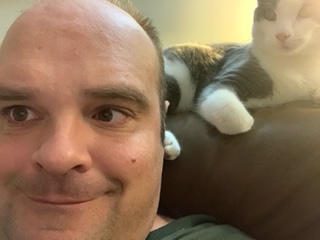 Marshall Bood
Marshall Bood
Born: 1980 Indian Head, Saskatchewan, Canada
Resides: Regina, Saskatchewan, CanadaMarshall Bood’s debut collection is Spring Cleaning (Ugly Duckling Presse, 2021).
-
Boyer, David
David Boyer
Born 1974 in Pennsylvania, USA
Living in Stamford, CT., USA
I had written poetry (badly, lazily) for most of my life. It was in finding haiku, and the brilliant and supportive community of modern haiku poets, that my work started to come into focus.
-
Bröker, Ralf
Ralf Bröker
Born 1968 in Ochtrup, NRW, Germany
Living in Ochtrup, NRW, Germany
http://www.broeker-online.de -
Brooks, Randy
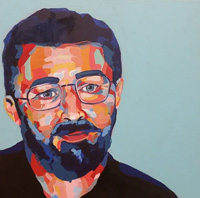 Randy Brooks
Randy Brooks
Born 1954 in Hutchinson, Kansas, USA
Living in Taylorville, Illinois, USA
http://www.brooksbookshaiku.comThis email address is being protected from spambots. You need JavaScript enabled to view it. Dr. Randy M. Brooks is a Dean and Professor of English at Millikin University. He teaches courses on the global haiku traditions at Millikin with student work available on the MU Haiku web site: http://performance.millikin.edu/haiku. He and his wife, Shirley Brooks, are co-editors and publishers of Brooks Books, and co-editors of Mayfly magazine. He serves as web editor of Modern Haiku and Frogpond journals. A collection of his haiku, School’s Out, was published by Press Here.
-
Buckingham, Helen
Helen Buckingham
-
Burke, Alanna C.
 Alanna C. Burke
Alanna C. BurkeBorn in 1952
Residing in Santa Fe, New Mexico, U.S.A.
Alanna C. Burke lives north of Santa Fe, New Mexico in the foothills of the Sangre de Cristo Mountains, where she divides her time between writing poetry and working as business manager for her husband, the artist William Berra. Her poetry has been published in print and online periodicals including Modern Haiku, The Heron’s Nest, Frogpond, NOON : journal of the short poem, bottle rockets, Kingfisher, Autumn Moon Haiku Journal, Wild Plum, Creatrix Haiku Journal, Shamrock, and Prune Juice.
-
Byrnes, Sondra J.
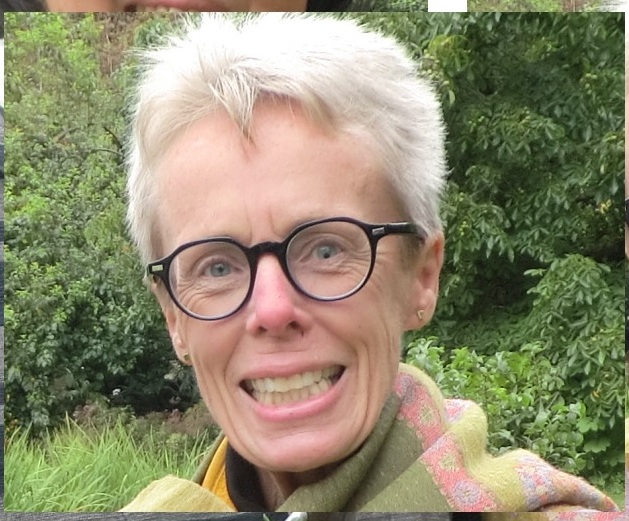
Sondra J. Byrnes
Living in Sante Fe, New Mexico, USA
Her poetry has been published in Frogpond, A Hundred Gourds, Ribbons, Modern Haiku, The Heron’s Nest, Moongarlic, among others. Byrnes, together with Charles Trumbull, started the Santa Fe Haiku Study Group in February 2015. She was elected Secretary of the Haiku Society of America in 2015 and serves on the Planning Committee for Haiku North America 2017 in Santa Fe. Byrnes is a retired law and business professor from the University of Notre Dame; she lives in Santa Fe, New Mexico. Along with short form poetry, Byrnes is interested in ikebana and chanoyu.
-
Campbell, Pris
 Pris Campbell
Pris CampbellA former Clinical Psychologist, Pris Campbell has published both short form and free verse poetry in a variety of journals and anthologies. The small press has published eleven of her books/ chapbooks. Raised in South Carolina, she has lived all over the country and is settled now in Florida.
-
Canby, Joan
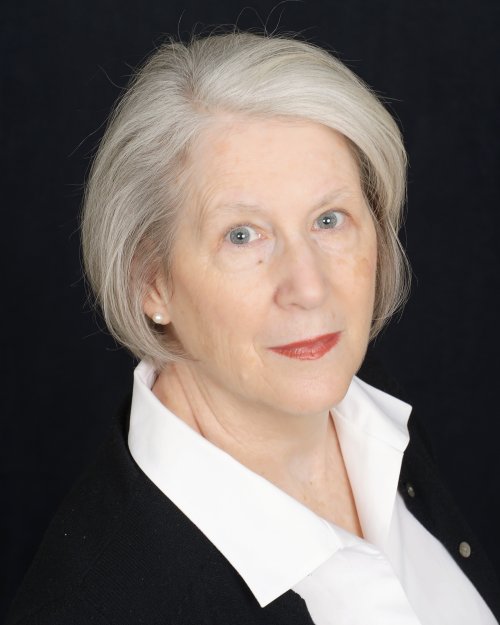 Joan Canby
Joan CanbyJoan Canby lives in Texas, U.S.A.
-
Cardillo, Lucia
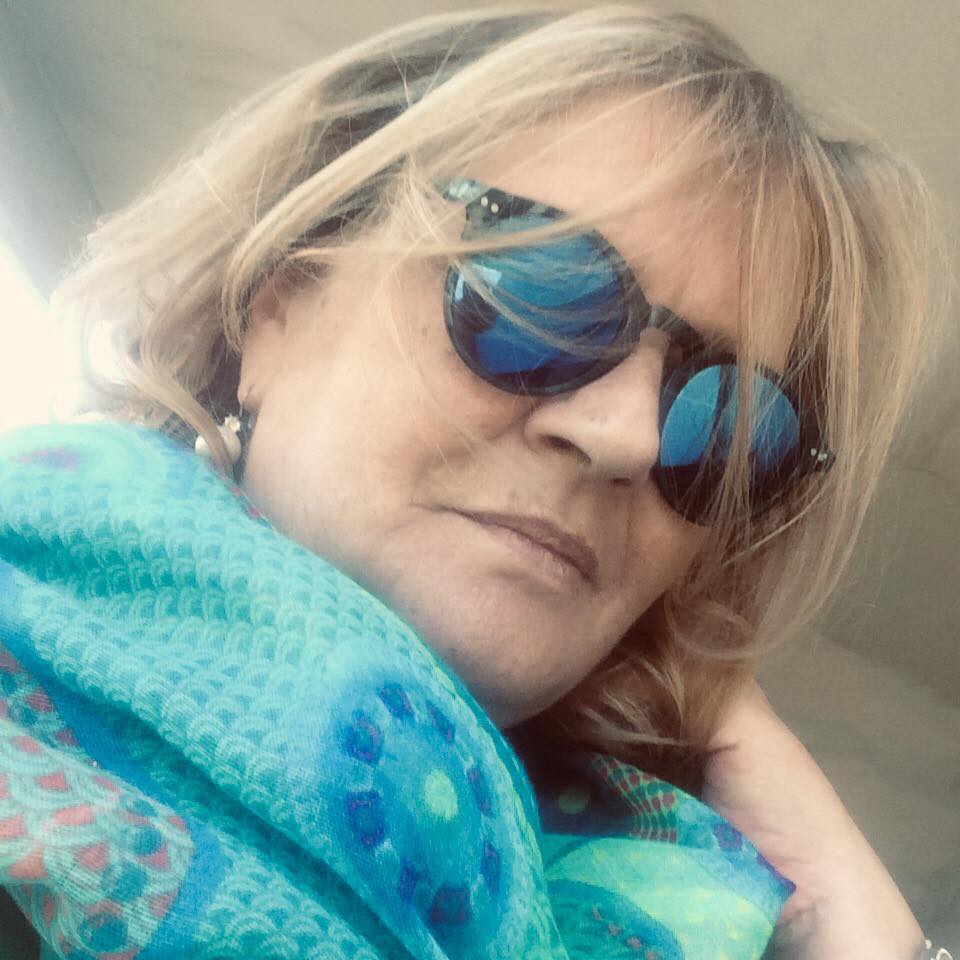 Lucia Cardillo
Lucia CardilloBorn in Rodi Garganico (FG), Italy
Living in Rodi Garganico (FG), ItalyShe works as assistant at the Umberto Giordano Conservatory of Music and writes haiku and senryu since 2016. Her poems have been published on many blogs and online and printed magazines in the world.
She published her first haiku collection (in Italian and English) in May 2019 “All’ombra del gelso” ed. La Ruota – Italy.
-
Carragon, Patricia
Patricia Carragon
A native New Yorker, Patricia Carragon’s latest books are "The Cupcake Chronicles" (Poets Wear Prada, 2017) and "Innocence "(Finishing Line Press). She hosts the Brooklyn-based Brownstone Poets and is the editor-in-chief of its annual anthology. She is one of the executive editors for Home Planet News Online.
-
Castaldi, Erin

Erin Castaldi
Born 1978
New Jersey, United StatesErin is a writer who became devoted to the pursuit of haiku theory and poetry during her travels around the U.S. She lives in southern New Jersey with her husband and two basset hounds. They operate a small business and are restoring a nineteenth century farm house.
-
Chaturvedi, Salil
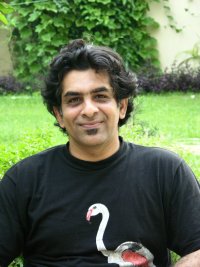 Salil Chaturvedi
Salil ChaturvediBorn 1968, India
Currently residing in Goa, India
Website/blog: http://salilchaturvedi.blogspot.inSalil Chaturvedi took to haiku in 2007 and has turned into a haiku addict. It is a form that allows him to enter the stream which flows all around us, right here, right now. And the stream is addictive. He also writes short fiction and poetry that has appeared in various magazines and anthologies.
-
Chellappan, Hemapriya
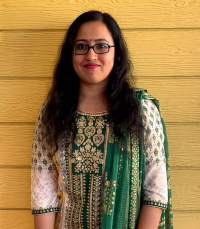 Hemapriya Chellappan
Hemapriya ChellappanBorn 1991 in India
Hemapriya Chellappan is a haikai poet, illustrator and haiga artist who resides in Pune, India. She took to Japanese literary short forms in the summer of 2019. Ever since her works have been published in various international print journals and e-magazines. Her work has also appeared in Living Senryu Anthology and podcasts. When she isn’t daydreaming she writes jokes, sketches landscapes, hums old songs and makes excellent tea.
-
Chhoki, Sonam
Sonam Chhoki
-
Chocilowska, Marta
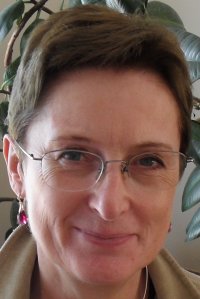 Marta Chocilowska
Marta ChocilowskaBorn: 1950 in Warsaw, Poland
Living in: Warsaw, Poland
Contact the poet
Website: http://www.majorkowo.blogspot.com/Marta Chocilowska is a retired economist, fan of cats, music, poetry and cycling. In 2013 she joined the Warsaw Haiku School - KUZU. Marta is also a founding member and a Treasurer of the Polish Haiku Association, established in February, 2016.
-
Chula, Margaret
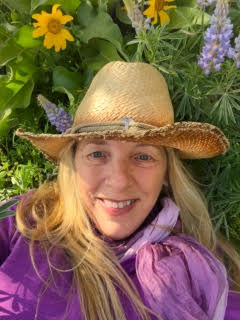 Margaret Chula
Margaret ChulaBorn 1947 in Brattleboro, Vermont, USA
Living in Portland, Oregon USA
Contact the poet at: http://www.margaretchula.com -
Coburn, Robbie
 Robbie Coburn
Robbie CoburnBorn 1994 in Melbourne, Victoria, Australia
Living in Melbourne, Victoria, AustraliaRobbie Coburn is an Australian poet and author who was first inspired to write haiku after reading “In a Station of the Metro” by Ezra Pound. His haiku has been published widely, including in Modern Haiku, The Heron’s Nest, NOON: Journal of the Short Poem, Presence, tinywords, Frogpond and Blithe Spirit. His work was selected for inclusion in a hole in the light: The Red Moon Anthology of English-Language Haiku 2018, edited by Jim Kacian, and under the same moon: Fourth Australian Haiku Anthology (2024). His haiku has also been translated into Spanish and transcribed into braille and added to the State Library of Victoria’s collection. His first haiku collection, blood rodeo, was published by Red Moon Press in 2025. He grew up on a farm in Regional Victoria and now lives in Melbourne, where he is a member of the Fringe Myrtles Haiku Group.
Publications
blood rodeo: haiku of Robbie Coburn (Red Moon Press, 2025)
E-mail:This email address is being protected from spambots. You need JavaScript enabled to view it.
Website: http://haiku.robbiecoburn.com
-
Colgan, Stephen
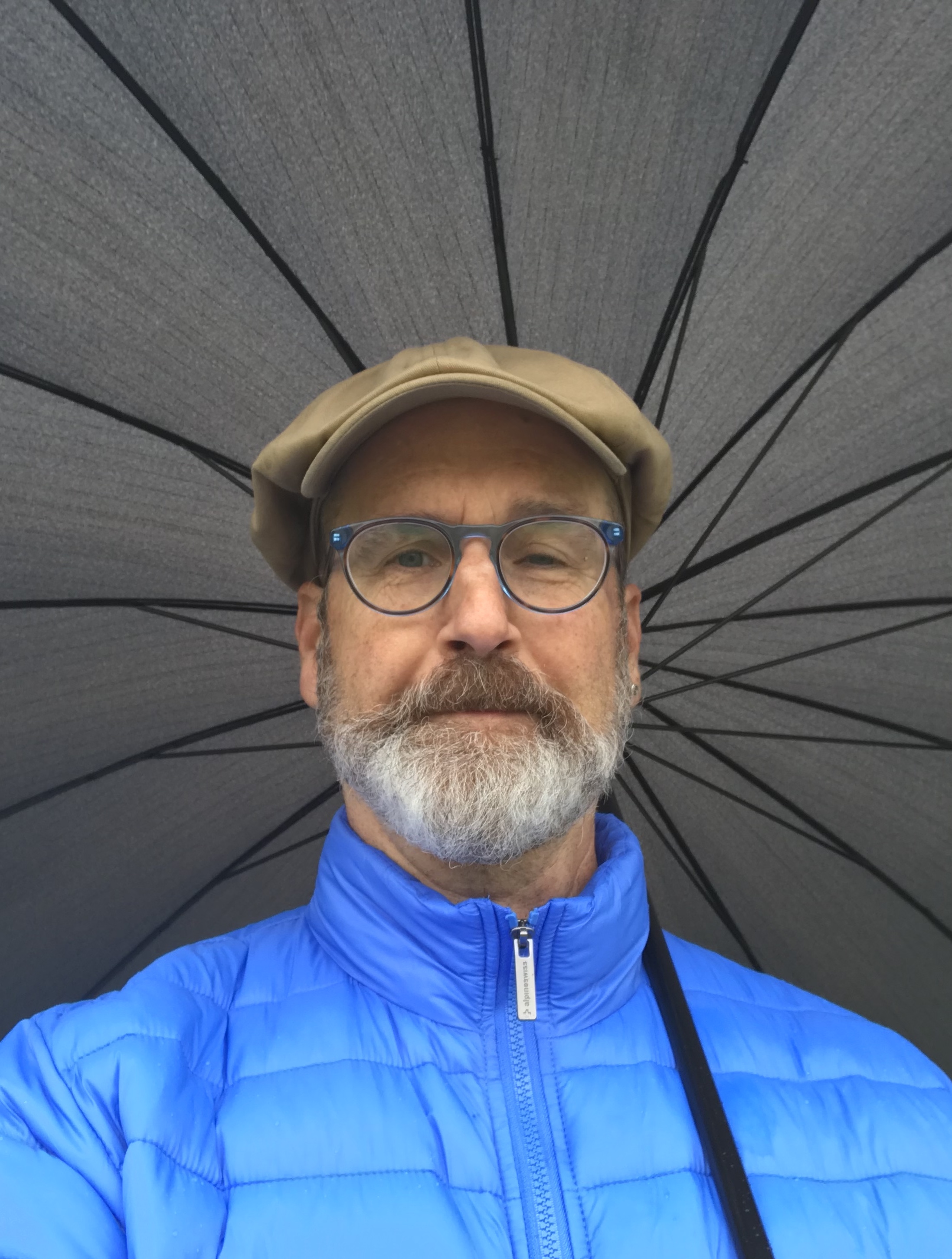 Stephen Colgan
Stephen ColganBorn 1954 USA
Living in Oakland CaliforniaStephen Colgan is a psychotherapist, writer, and photographer. He believes in kindness.
-
Conway, Sophia
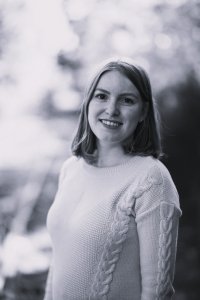 Sophia Conway
Sophia ConwayYear and Place born: 1995 in Wales, UK
Current residence: Vancouver Island, Canada
Website: www.sophiaconway.caSophia Conway is an Irish writer and poet residing on Vancouver Island, Canada, with her husband and infant son. Her poetry has been published in multiple journals and in her spare time she enjoys creating haiga in new ways. She is a member of Haiku Canada, the Haiku Society of America, and Haiku Ireland.
-
Cooper, Pamela
Pamela Cooper
-
Cremin, Tim
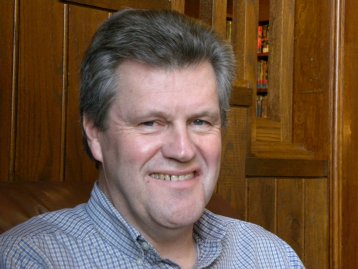 Tim Cremin
Tim CreminBorn: 1957 (USA)
Currently lives in Andover, MassachusettsTim Cremin is the author of the poetry chapbook The Way You Run in Dreams, published by Finishing Line Press. His work has appeared in several literary journals, including Frogpond, Mayfly, Modern Haiku, Soundings East, and Westview.
Author Page: https://www.amazon.com/Tim-Cremin/e/B079Y31FDL?ref_=pe_1724030_132998060
-
Crocket, Elizabeth
 Elizabeth Crocket
Elizabeth CrocketCountry of birth: Canada
Currently resides: Ontario, CanadaElizabeth is an award-winning Canadian poet, who has had two books shortlisted for the American Haiku Foundation Touchstone Distinguished Books Award. She won the 2nd annual Jane Reichhold Photographic Haiga Contest and won 2nd prize in the H. Gene Murtha Senryu Contest. Elizabeth has been featured in the Haiku Foundation Haiga Galleries twice, showcasing her collage haiga and photo-haiga. She was co-judge of the Nicholas A. Virgilio Memorial Contest in 2020, and had a photo-haiga commissioned by the City of Burlington for an outdoor art and writing display. She has been widely published in most of the leading haiku journals, including Modern Haiku, Frogpond and Mayfly.
-
Culver, Ralph
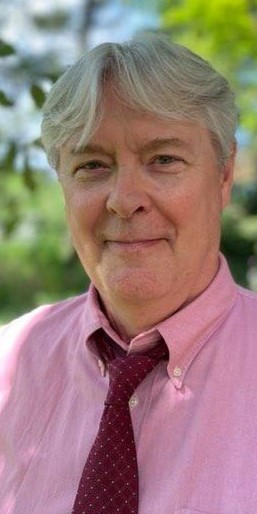 Ralph Culver
Ralph CulverYear of birth: 1952
Country of birth: United States
Currently residing: Vermont and central Pennsylvania, United States
Ralph Culver's love of haiku and Eastern poetic forms goes back to his childhood. His work has appeared in many print and online journals. A Passable Man (2021) is his latest poetry collection.
-
Cummins, Máire Morrissey
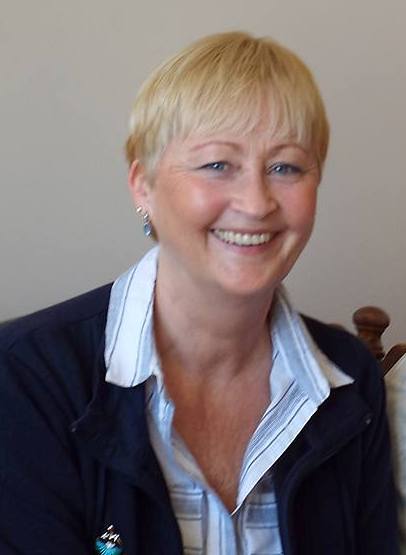 Máire Morrissey Cummins
Máire Morrissey Cummins
Born 1958 at Waterford, IrelandMáire is Irish. She was born by the sea and continues to live by the sea in Greystones, Co. Wicklow, the “Garden” of Ireland. She started writing haiku in 2010. She joined the Irish Haiku Society and Haiku Ireland. She contributed to Shamrockmagazine and to the Irish Haiku Society competitions and was published on a regular basis. She was part of the Irish Haiku publication, Bamboo Dreams. She was published by Presence, The British Haiku Society, by AHA or Lynx Journals with Jane Reichold, Daily Haiku, Wednesday Haiku, Acorn, Frogpond and A Hundred Gourds. Currently she contributes to Wales Haiku Journal and to a number of foreign print and online journals. She loves nature, her garden, she paints and writes daily in her retirement.
-
Dadhwal, Neelam
Neelam Dadhwal
-
Damhave, Lydia Royen
Lydia Royen Damhave
Born 1979 in Frankfurt/M, Germany.
Living in Copenhagen, Denmark.
Since 2012 haiku and other forms of poetry in literary magazines.
-
Damir, Damir
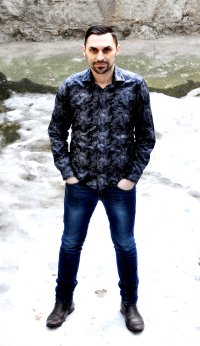 Damir Damir
Damir DamirBorn: 1977 in Kotor, Yugoslavia
Resides: Belgrade, Serbia
Damir Janjalija (aka Damir Damir) was born on November 6, 1977 in today’s non-existent Yugoslavia. A sailor by profession, a poet by vocation, and a dharma bum by choice. His poems have been published in many significant contemporary haiku journals and anthologies, both in the country and abroad. He is the winner of several international haiku awards.
Books Published: Imprints of Dreams (Udruženje građana Trablmejker, 2012), Freedom in the Mist (Odličan Hrčak, 2013), Filigree Memories (Književna radionica Rašić, 2017).
Contact the poet.
Website: https://www.facebook.com/damirhaiku/
-
Davidson, Tracy
 Tracy Davidson
Tracy DavidsonBorn 1970 in Paisley, Scotland
Living in Warwickshire, England -
Decker, Warren
 Warren Decker
Warren Decker
Born in the United States in 1977
Living in Japanwebsite https://disorienteering.wordpress.com/
Warren Decker is a writer and teacher based in Osaka. In addition to writing haiku and senryu he performs rhythmical poems as Enjambmental.
-
Derley, Marie
Marie Derley
Born 1961 in Belgium
Living in Belgium
Marie Derley is a Belgian poet and painter, graduate in art history. She works in a glass tower in Brussels, and has recently published a volume of haikus: “En souriant” (Smiling in French), Ed. Renée Clairon. She appears regularly in many reviews, mostly in French, and 3 anthologies.
-
Devi, Kanjini
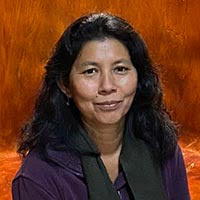 Kanjini Devi
Kanjini DeviBorn 1969 in Malaysia, now residing in Aotearoa New Zealand
Kanjini lives in the Hokianga. Her published poetry in various journals and anthologies can be seen online and in print. She is not well known for her movie roles and music recordings. She has taught Yoga all her adult life, and is the present haiku editor at Under the Bashō.
-
Dobb, Jan
Jan Dobb
-
Dolphy, Steve
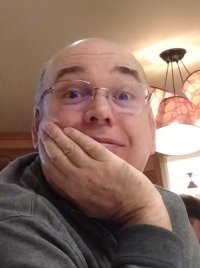 Steve Dolphy
Steve DolphyBorn 1961, Southampton, United Kingdom
Present place of residence: Eastleigh, Hampshire, United KingdomSteve worked in business before becoming a clinical psychologist. Whilst living in Vietnam, 1997 to 2001, he studied Vietnamese at the Hanoi National University and started writing haiku. He has published two haiku collections: The Cry of the Duck Egg Seller Ram Publications, 2004 and A Compendium of Glimpses Kindle, 2015.
-
Domburg-Sancristoforo, Anna Maria
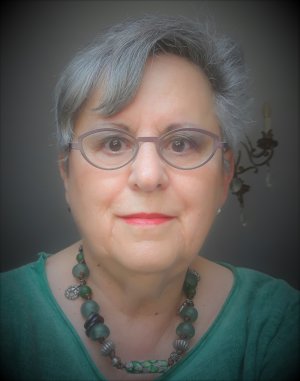 Anna Maria Domburg-Sancristoforo
Anna Maria Domburg-SancristoforoAnna Maria Domburg-Sancristoforo was born in 1948 in Genoa (Italy), but she lives in the Netherlands (The Hague), where she worked as a university lecturer in Italian language and culture at Leiden University.
She writes haiku, senryū, tanka both in Italian and English. Her work has been published in international magazines, blogs and (e-)journals.
Last year she received an honorable mention at the 73rd Basho Memorial English Haiku Contest.
Blog: https://ventodelgiorno.wordpress.com/ -
Doppler, Janice
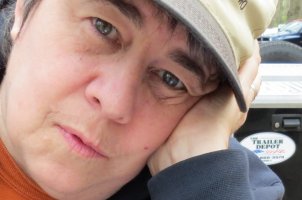 Janice Doppler
Janice DopplerBorn 1948 in USA
Living in Massachusetts, USAJanice is a retired public school teacher and administrator. Stardust, her debut collection of haiku and haibun, was published by Phacops Publishing in 2021.
https://poets.drifting-sands-haibun.org/first-name-starts-with-j/janice-doppler/
-
Duc, Hélène
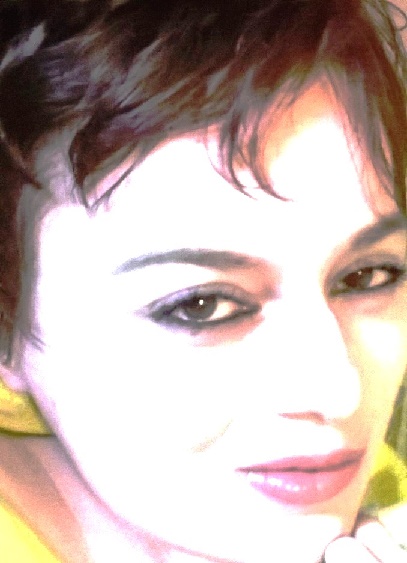 Hélène Duc
Hélène DucBorn 1982 in Chauny, France.
Living in Bichancourt, France. -
Duffield, Roy
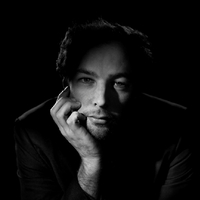 Roy Duffield
Roy DuffieldCountry of birth: UK
Year of birth: 1988
Current place of residence: Barcelona, Spain
Email address:This email address is being protected from spambots. You need JavaScript enabled to view it.
Personal blog: https://drinkingtraveller.comRoy is a man of few words. Said words can be read in Heliosparrow, Quadrant, Failed Haiku, The Crank, Mamba, postscript, Akitsu Quarterly, Silver Storkand The Journal of Wild Culture.
-
Đuretić, Nikola
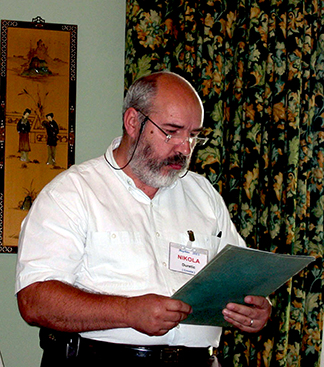 Nikola Đuretić
Nikola ĐuretićNikola Đuretić was born in Osijek Croatia in 1949. He worked in publishing and for more than twenty years in London as a Senior Producer with the BBC. Thus far he published more than thirty books of prose, poetry, essays and feuilleton, of which twelve are collections of haiku. For his literary work he received numerous awards of which several for haiku Honourable mention at 16th and 24th HIA Haiku Contest, Runner up at International Haiku Contest “Vladimir Devide”, Honourable Mention at 2nd Morioka International Haiku Contest, Merit Award ITO EN Oi Ocha twice, International Sakura Award, etc.. For his contribution to Croatian culture he was awarded the highest state order for culture in 1998. A member of the Croatian Writers’ Association, he lives in Zagreb Croatia.
-
Edge, Lynn
Lynn Edge
Born 1943 in Texas, USA
Lives in Tivoli, Texas, USA
-
Eklund-Cheong, Anna
Anna Eklund-Cheong

b. 1959, USA
currently residing in Croissy-sur-Seine, France
Living an expatriate life in France has been rewarding; but now that the nest is empty, I have more time to devote to a creative activity I loved long ago—composing haiku. I embrace the challenges of writing modern, English-Language Haiku (ELH). I also travel, blog, lead tours, and volunteer.
Website/Blog: https://parishaiku.com
-
Eyre, David Kāwika
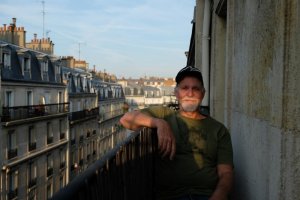 David Kāwika Eyre
David Kāwika EyreBorn in 1946 in the USA and currently lives in Volcano, Hawai‘i.
He has has taught Hawaiian language at Kamehameha Schools for 30 years. His books have won numerous Ka Palapala Po‘okela honors, including the Award of Excellence for By Wind, By Wave, as best natural science book of 2000. Kamehameha–The Rise of a King received the Palapala Po‘okela Award in Hawaiian culture, a Moonbeam Children’s Book Award, a Read Aloud America award, and a Nënë Award. Eyre’s haiku collection, not a one, was published by Red Moon Press in 2018.
-
Farooq, Yasir
Yasir Farooq
born 1976 in Pakistan
The journey of my English Haiku resumed in 2020. Several journals like Frog Pond, Bloo Outlier, Cold Moon Journal, The Asahi Haikuist Network, Failed Haiku and Prune Juice Senryu published my works. I was honored to have been nominated for Push Cart Prize by Cold Moon Journal in 2021.
-
Fleischer, Donna
Born in Hartford Connecticut, USA
Living in Bloomfield, Connecticut, USA
http://donnafleischer.wordpress.com -
Forges-Ryan, Sylvia
Sylvia Forges-Ryan
Born 1937 in New York City, New York, USA
Living in North Haven, Connecticut, USA -
Gaiardoni, Barbara Anna
 Barbara Anna Gaiardoni
Barbara Anna GaiardoniBorn 1967
Verona, ItalyBarbara Anna Gaiardoni is a pedagogist and author. She received two nominations for The Touchstone Award and was recognized on the Haiku Euro Top 100 list and The Mainichi’s Haiku in English Best list for 2023. Her works has been published in 211 international journals and translated into 12 languages.
Blog: http://barbaragaiardoni.altervista.org/blog/haikuco-2-2/
-
Gallagher, Mike
Mike Gallagher
-
Galmitz, Jack
Jack Galmitz
-
Gardiner, Tim
Tim Gardiner
Born 1978, United Kingdom.
Currently resides in UK.Dr Tim Gardiner is an ecologist, poet and children's author from Manningtree in Essex, UK. His haiku have been published in over 100 print and online magazines and he has been widely anthologised. His first collection of haiku, On the Edge, was published by Brambleby Books in 2017.
Webpage: http://www.essexfieldclub.org.uk/portal/p/Insect+poetry
-
Gargiulo, Marita
Marita Gargiulo
Marita discovered haiku at MIT while editor of a poetry magazine. She has organized poetry contests, haiku nights, and collaborations with an orchestra. Marita has made video haiga and was a Haiku Foundation guest editor. In 2019 she received the Senryu Prize in the Kaji Aso Studio International Haiku Contest.
-
Garrison, Denis M.
Denis M. Garrison
Born 1946 in Hampton, Iowa, USA
Living in Baltimore, Maryland, USA
Contact the poet -
Gatalica, Goran

Goran Gatalica
Goran Gatalica was born in Virovitica, Croatia, in 1982 and currently resides in Zagreb, Croatia.
He finished both physics and chemistry degrees from the University of Zagreb and proceeded directly to a PhD program after graduation. He has published poetry, haiku, and prose in the literary journals and anthologies.
-
Geyer, Pat
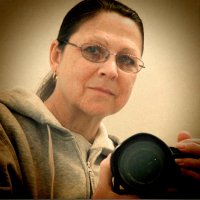 Pat Geyer
Pat GeyerBorn 1951 in Newark, NJ, USA.
Living in East Brunswick, NJ, USA -
Gilbert, Richard
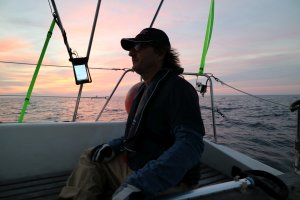 Richard Gilbert
Richard GilbertBorn 1954 in Connecticut, USA
Living in Kumamoto, Japan
http://gendaihaiku.com
http://sailing-across-oceans.org
Hear the poet reading a selection of his haiku
Contact the poet
-
Gordon, Chris
Chris Gordon
Born 1966 in Toronto, Canada
Living in Eugene, Oregon, USA
http://antantantantant.wordpress.com
Contact the poet -
Griffo, Eufemia
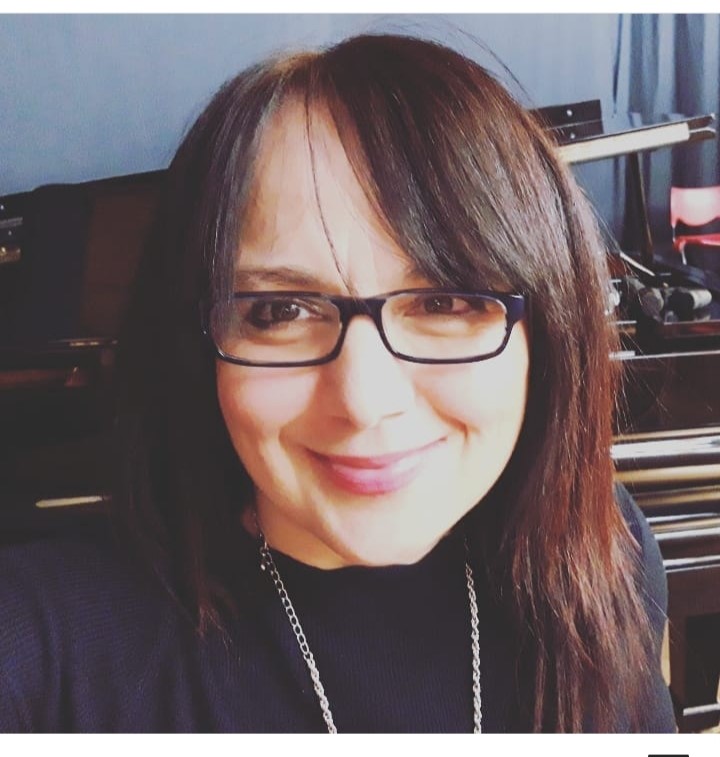 Eufemia Griffo
Eufemia Griffo
-
Grisetti, Joann
Joann Grisetti
-
Guliaeva, Irina
 Irina Guliaeva
Irina GuliaevaBorn 1991 and residing in Moscow, Russia
Irina writes poems, prose, plays, lyrics of songs and translate poetry of English, Italian and Russian authors. From age of fourteen has been working as a journalist. In 2015 graduated from Literature institute named M. Gorky.
She has a page of her work in the Living Senryu Anthology.
-
Gupta, Rohini
Rohini Gupta
-
Gurga, Lee
Lee Gurga
Born 1949 in Chicago Illinois, USA
Living in Lincoln, Illinois, USA
Lee Gurga is a past president of the Haiku Society of America and former editor of the journal Modern Haiku. He is currently editor of Modern Haiku Press. He works as a general dentist in the farming community of Lincoln, Illinois.
His awards include three first prizes in international haiku contests, an Illinois Arts Council Poetry Fellowship, the Japan-America Society of Chicago's Cultural Achievement Award, and, in his professional work as a dentist, an American Red Cross Healthcare Heroes Award.
-
Haiku in English – A General Guide to Genre Distinction (by Richard Gilbert)
Haiku in English – A General Guide to Genre Distinction
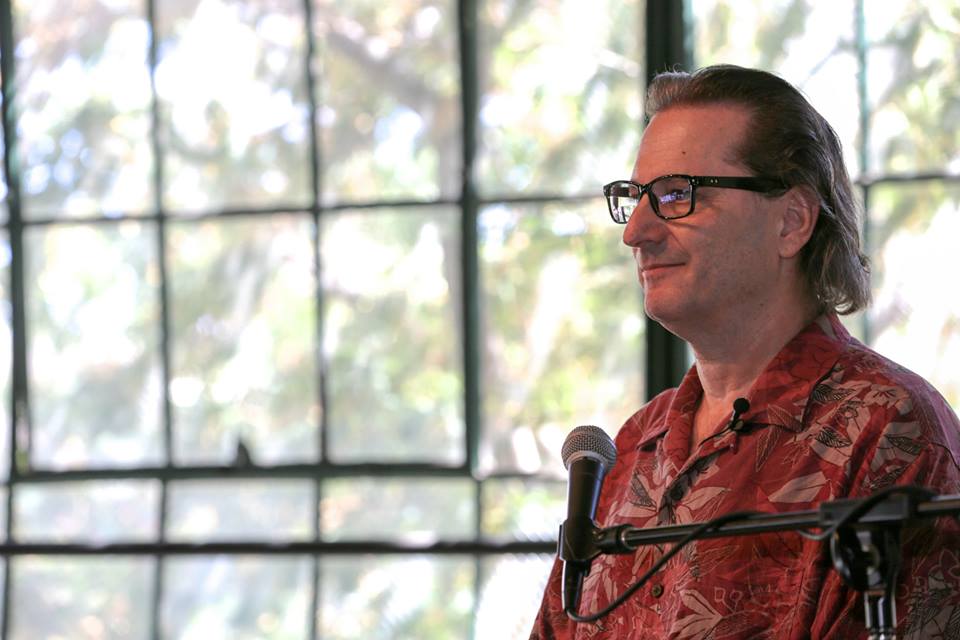 by Richard Gilbert, January 2016
by Richard Gilbert, January 2016
A new definition
One of the persistent questions is “what makes a haiku a haiku”? In English, as can be seen from the 1000’s of examples housed in the Living Haiku Anthology, and in noted haiku journals, excellent haiku have long done away with syllable counting, and rather incorporated creative metrical styles of rhythm, which in various ways well-articulate (and generally emulate) haiku sensibility, as found in Japan, particularly when the entire oeuvre, contemporary to feudal, is considered. As well, there are a number of reasons — cultural, linguistic, historical, etc. — for exploring and utilizing the creative potency and power of the languages and literary contexts evolving from within each locale haiku arrives. That is, haiku in English (in this case) is not likely to achieve excellence by merely copying an imported formula. At the same time, it’s necessary to articulate the difference between haiku and epithet, haiku and the nonce phrase, haiku and a quaint, if exotic image with a touch of pathos, and the like.
While the subject of “genre” elides with sensibility and style (for instance “traditional,” “nature oriented” and “radical,” are kinder terms seen), in taking a broad-minded perspective, Haruo Shirane offers an expansive connotation of haiku, meant to benefit poets creatively:Echoing the spirit of Bashō’s own poetry . . . haiku in English is a short poem, usually written in one to three lines, that seeks out new and revealing perspectives on the human and physical condition, focusing on the immediate physical world around us, particularly that of nature, and on the workings of the human imagination, memory, literature and history. . . . this definition is intended both to encourage an existing trend and to affirm new space that goes beyond existing definitions of haiku (Shirane, 2000, p. 60).
In the above “definition” one is struck not only by what is new, but also by what is left out: no haiku “moment,” no Zen attributes, no specific linguistic preoccupations. Of particular import here is the phrase, “the workings of the human imagination, memory, literature and history.” Shirane not only situates the haiku genre within the context of modernity; the limiting sensibility of haiku as a naturalist-realist image-poem is contravened. This new definition of haiku does however present a conundrum: what might be the difference between the haiku and a short, contemporary poem, in English? While it’s impossible to draw a precise line in the sand, examining a large number of notable haiku, all of them play with two broad mutual attributes: disjunction (disjunctive styles), and reader-resistance. In the following excerpt from the book Disjunctive Dragonfly, four ideas are advanced: 1) a poem (or prose phrase, or epithet) lacking disjunction cannot be considered haiku, 2) poems possessing weak disjunction can be excellent haiku, 3) poems possessing strong disjunction can be excellent haiku, and 4) generally the stronger the disjunctive aspect, the more resistant to reader-comprehension the haiku will be.
Disjunction in The Haiku Genre - Strong And Weak
Disjunctive modes
One of the questions that has arisen concerning disjunctive modes has to do with their relationship with “traditional” or “mainstream” haiku. . . . The accepted definition and acceptable range of published haiku in English in the postwar era has generally been delimited by what has come to be termed “traditional haiku”: a poem of objective realism composed of two primary, juxtaposed images, associated with nature, normatively represented in three lines. The terms “traditional” and “mainstream” have increasingly found their way into parlance as a reaction to the burgeoning of disjunctive approaches to haiku over the last decade. As disjunctive concepts are not wedded to syntactical, imagistic or concrete (layout or lineation) concerns, experimental permission is implicitly offered.
[Here it is suggested that] it is the force of disjunction acting on the reader’s consciousness which is the primary motif impelling successful juxtaposition. . . . From this perspective, all haiku possess disjunction. That said, does it follow that strong disjunction necessarily makes for a strong haiku? And conversely, can an objectively-realist haiku possessing weak disjunction also achieve formal excellence?
Haiku Exhibiting Strong Disjunction
The following examples present “one-image” haiku exhibiting the three genre-types of disjunction (explained in detail in Disjunctive Dragonfly) in a strong sense — each was published in a Modern Haiku Journal (MH) issue within 2011-12. (The parenthetical numbers indicate syllable-counts per line.)
back from the war
all his doors
swollen shutBill Pauly, 2011, MH 42:1; HIE 158 (4-3-3)
the scent of paradise a dead bird in my handLee Gurga, 2011, MH 42:2 (6-6 | 6-3-3)
even, if, because
plum blossoms
in the courtyardMiriam Sagan, 2011, MH 42:2 (5-3-4 | 2-1-2-3-4)
Note that in those examples with multiple metrical permutations (syllable-counts), alternate meanings may be divined, as the metrics determine to an extent how the phrases are semantically parsed by the reader.
In Pauly, observe the dual, mutually exclusive layers of literal versus psychological implication of “doors swollen”; in Gurga, the strong paradox of “paradise,” contrasted with the intimate, tragic touch of the dead bird; and in Sagan, the playfully ambiguous linguistic postulations concerning something having to do with those “plum blossoms” of spring.
sap rising he imagines me completelyMelissa Allen, 2011, MH 42:3(3-8 | 3-5-3 | 8-3)
sore to the touch his name in my mouthEve Luckring, 2011, MH 42:3 (4-5)
a word that takes time defoliationJohannes S. H. Bjerg, 2012, MH 43:1(5-5)
In Allen, there appears her notion of his notion of her, and her notion of the situation altogether, presented within a scenario of erotic drama — the ku leaves much to the imagination, inviting misreading; Luckring presents a complex texture of perceptual near-synesthesia, as pain (mixed with bliss?) combines with touch, metaphor and identity — also within an intimate context, yet one given ambivalently, as it may be read with multiple (and mutually exclusive) readings. Bjerg sets up readers by breaking the “fourth wall,” addressing us directly from the poem — then caps the set up with multiple implications (linguistic, sociopolitical, ecological) of that single, final word “defoliation”: indeed, also a mouthful.
raven shadow clinging tightly to my victim storyMichelle Tennison, 2012, MH 43:2 (4-10 | 8-6 | 4-4-6 | etc.)
in tune with its obstacles, rainEve Luckring, 2012, MH 43:3 (7-1 | 2-5-1 | 3-4-1)
quietly in the 21st century
dark places
on a full moonGary Hotham, 2012, MH 43:3 (11-3-4)
Tennison begins with an unusual collocation, “raven shadow” and plays with misreadings of syntax, as the haiku can be read “raven shadow clinging tightly,” “raven shadow | clinging tightly,” and in further alternatives, according to its metric options — this metrical multiplicity invites misreading as meaning. Potent and disturbing emotions are evoked, yet paradoxically, as an artwork this haiku is a talisman of clarity and healing, possessing psychological concision. A sense of musical analogy and aural space inhabits Luckring’s ku, with the sound of rain shaping the sense of what those obstacles may be: physical, emotional, psychological? The disjunctive paradox of “in tune” offers notions of harmony. Hotham evokes the era by presenting most of what is absent (darkness, silence) as a presence, offering the reader a vision of what lies behind or apart from the noise, whether in a serene or an abandoned sense. This strongly disjunctive aspect propels the sense of reader-paradox, concerning meaning and perception.
Haiku Exhibiting Weak Disjunction
Next, several examples of notable haiku that exhibit weak disjunction are presented, taken from three major haiku anthologies illustrating historical influence: Haiku in English, 2013 (HIE), The Haiku Anthology, 3rd ed, 1999 (THA), and Haiku Moment, 1993 (HM):
Just enough of rain
To bring the smell of silk
From umbrellasRichard Wright, c. 1960; HIE (5-6-4)
in morning sun two white horses the autumn aspenElizabeth Searle Lamb, 1985; HM (8-5)
JANUARY FIRST
the fingers of the prostitute coldBob Boldman, 1981; THA 15 (5-9)
Richard Wright’s haiku seems to possess almost no disjunctive aspect. It is a puzzle haiku however, with the subject last, and the setup of “just enough” creates psychological suspension, within which develops a cascading contrast from rain, to silk, to umbrellas. Each next noun is unexpected in relation to the previous. The poem offers a nuanced observation that plies language with delicacy. The first line also presents unusual or irruptive grammar. Yet if the poem were read as a sentence within a novel (as a narrative muse), most probably wouldn’t blink. We know Wright was a long-term expatriate living in Paris, and the umbrellas were indeed made of silk and colorful. “Just enough” here means a mere sprinkle, and one imagines the fashionable women of Paris out on the sidewalk, having suddenly in near-unison opened their varicolored canopies. Wright, a deeply principled man, was around this time justifiably paranoid: “The CIA and FBI had Wright under surveillance starting in 1943, [and he was] blacklisted by Hollywood movie studio executives in the 1950s” (Wiki). Wright lived the last years of his life under “extraordinary pressure” (ibid). He sickened in 1957, and in 1960 died in Paris at the age of 52. Biographical knowledge adds sociopolitical and psychological complexity to the objective presentation here. (See his poem, "The FB Eye Blues," which contains the lines, “Each time I love my baby, gover'ment knows it all . . . Woke up this morning / FB eye under my bed”).In E.S. Lamb is found a minimal application of concrete disjunction (the spatial gap between the two parts), and a profound sense of quietude is evoked. The elegantly phrased and rhythmically paced description is painterly. An entire mountain valley seems present in its fall season, a nip in the air, the golden aspen quivering in the merest breeze, and shining white horses — offering that rare echo of remembrance: the perfection of a day, an expansive sense of peace extending through paddock, fields and woods. A Rocky Mountain or Sangre de Cristo ku of the rugged American West.
Boldman begins with what seems like a newspaper headline in all caps. A new year's haiku, traditional as to “season,” yet by contrast, a strongly urban haiku as well. As he passes, are her fingers a raw, red-white or even a little blue, ungloved; and he seems to be hanging out in a ratty part of town (or, is the knowledge of cold fingers communicated through touch — a proposition implied?). The headline scans like an announcement read on a newspaper when passing a newsstand, probably at night, perhaps even New Year’s Eve, after midnight; waiting on the street mid-winter for a john. Concerning disjunction, “semantic register shift” (newspaper headline-to-internal observation) is utilized; however, contrast and topic rather than disjunctive effect provide the main poetic force. This is a haiku of social consciousness, presented in a unique style.
The last example is by William Higginson, 1970; HIE (3-3-3):
I look up
from writing
to daylight
There is surprise in the disjunctive aspect of overturning expectation, and misreading (writing-to-daylight is also a shift of semantic register). Yet for a writer, it's likewise a normative, perhaps familiar, experience. This haiku feels real and exact to the author as a being. A poem of “makoto (verity)”: it’s so honest.These four different styles of excellent haiku each exhibit weak disjunction. Perhaps only the Wright would be considered most “traditional,” with its objective realism, three-line form, and genre-median short-long-short syllable count; yet it also has a degree of unusuality in its lack of fragment/phrase. In fact, this technical form was once labeled as the dreaded “one-image” haiku — a haiku lacking two separated imagistic segments. E.S. Lamb's haiku is presented in one line, with a gap, so it’s not in a traditional form; the Boldman has all caps and a prostitute; and Higginson presents a big fat capital “I” as a first word, and is focused on self-experience (said to be a traditional no-no — though it’s common enough in Japanese haiku, literally or by implication). As with Wright, Higginson’s haiku is likewise a “one-image” poem. Each of these works evokes a delicately nuanced world, and intriguing feelings; each possesses originality and a degree of formal uniqueness. The form (including perceptual disjunction, compression, and surprise as an overturning of semantic expectation) also helps each achieve its poetic power; all are poems of objective realism.
Critical Usefulness — Terminology
What can be drawn from these brief examples is that so-called “non-traditional” haiku do not necessarily equate to poems possessing strong disjunction, or highly unusual genre-deformative experiment; nor must excellent haiku possess strong disjunction, though they must possess intrinsically the three genre-types of disjunction to be considered haiku, in my opinion. While it is true that varieties of genre-specific disjunction (perceptual disjunction, overturning semantic expectation and misreading as meaning, etc.) can be observed, their presence is weak or mild in the examples just above, more of a background effect. Instead, contrast, image, topical surprise, and compression create the more potent, foregrounded effects.Generally speaking, depending upon which examples are selected, it seems possible to locate continua which thread through “traditional” and “non-traditional” haiku. It may be that the simplistic duality of “traditional” versus “non traditional” has outlived its critical usefulness, in terms of language characteristics and descriptions of haiku style.
For those fond of realism in haiku, who may eschew language play, metaphor, modes of disjunction and the like, where should these four examples of weak disjunction be placed in the haiku pantheon? Is “traditional” more a matter of weak disjunction, than a hewing to realism? Is there an objection to the use of “I” in Higginson’s signature haiku, or the one-line-with-gap “single-line” (monoku) haiku of Lamb? The all-caps and urban theme of Boldman? The lack of fragment/phrase in two of the above examples? It can be noted that the Wright haiku was first anthologized in the significant, posthumous book-length collection, Haiku: This Other World(1998), and Bill Higginson was arguably the most significant 20th century critic and scholar of English-language haiku.
Within Japan, similar experiments and topics to those presented above may be found, some from the haiku masters of yore: Bashō, Chiyo-jo, Buson, Issa, and additional works penned by the early 20th century masters. Each of these haiku have certain, so-to-say, “traditional” elements, and avoid strong disjunctive action. Yet upon close examination, these examples as a group depart from the overly restrictive formal requirements once considered a sine qua non of ELH in the 20th century: juxtaposition, the two-image poem of fragment/phrase, seasonal reference, kireji (an overt “cut” between parts of the haiku), etc.
When comparing and contrasting haiku plying strong versus weak disjunction, qualitative differences of style and presentation are evident — yet in the above examples, similarities seem to outweigh differences. These examples present a range of variation, rather than exclusive conceptions of haiku as a genre. Innovation is the lifeblood of this art form, and upon close examination excellent haiku of every stripe exhibit innovative disjunctive elements.
The Living Haiku Anthology
Disjunctive action, as an aspect of reader-resistance, is seen a sine qua non of haiku in English, and thus provides a means for determining genre-distinction, applying the broadest possible brush. By taking into account the aspects of genre-definition provided by Haruo Shirane, and the applied concepts of disjunction (articulated at length in The Disjunctive Dragonfly, 2013) as observed in all excellent haiku, it is possible to delimit the scope of the haiku genre within the Living Haiku Anthology, and it is from this inclusive critical perspective that LHA editors shall consider submissions for inclusion.
References
Gilbert, R. (2013). The Disjunctive Dragonfly: A New Approach to English-Language Haiku. Winchester, VA: Red Moon Press, 2013.
Shirane, H. (2000). “Beyond the Haiku Moment: Bashō, Buson, and Modern Haiku Myths.” Modern Haiku, 31:1, pp. 48-63. -
Hambrick, Jennifer
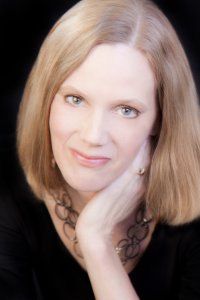 Jennifer Hambrick
Jennifer HambrickLiving in Columbus, Ohio
jenniferhambrick.com
hear Jennifer reading a selection of her haiku.
contact the poetBio:
A seven-time Pushcart Prize and Best of the Net nominee, Jennifer Hambrick is the author of a silence or two (Red Moon Press), winner of a Merit Book Award from the Haiku Society of America and shortlisted for the Touchstone Distinguished Books Award from The Haiku Foundation; Joyride (Red Moon Press), winner of the Marianne Bluger Book Award from Haiku Canada and shortlisted for the Touchstone Distinguished Books Award from The Haiku Foundation; In the High Weeds (National Federation of State Poetry Societies Press), winner of the Stevens Manuscript Award of the National Federation of State Poetry Societies; and Unscathed (NightBallet Press).Hambrick is featured by U.S. Poet Laureate Ted Kooser in American Life in Poetry, on Rattle poetry journal’s Rattlecast livestream, and elsewhere, and her work has been published in Rattle, The Columbia Review, The American Journal of Poetry, The Santa Clara Review, San Pedro River Review, Maryland Literary Review, The Main Street Rag, POEM, Chiron Review, Ekphrastic Review, JuxtaProse Literary Magazine, The New Verse News, A New Resonance: Emerging Voices in English-Language Haiku, vol. 13 (2023), Haiku 21.2, ed. Lee Gurga and Scott Metz (Modern Haiku Press, 2025); Frogpond, Modern Haiku, Heliosparrow Poetry Journal, The Heron’s Nest, Mayfly, Contemporary Haibun Online, The Haibun Journal, Kingfisher, The Mainichi, The Asahi Shimbun, Daily Haiga, multiple editions of Haiku 20XX anthologies (Modern Haiku Press); multiple editions of The Red Moon Anthology of English-Language Haiku, ed. Jim Kacian; and in dozens of other literary journals and invited anthologies for haimai and "mainstream" poetry. Hambrick’s critical essays on haiku and haibun are published in Juxtapositions, the journal of haiku research and scholarship published by The Haiku Foundation, and in Contemporary Haibun Online.
Hambrick has received numerous awards for her free verse poetry, Japanese short-form poetry, and haiga, including the Sheila-Na-Gig Press Poetry Prize (2020); seven Pushcart Prize nominations (2024, 2022 [x2], 2021 [x2], 2020, 2014); a Best of the Net nomination (2021); appointment as the inaugural first Artist-in-Residence at historic Bryn Du Mansion, Granville, Ohio, (2019); four First Place honors, a Special Award for Forensic Metalinguistics, and several Honorable Mentions, inaugural Heliosparrow Haiku Frontier Awards, 2024; First Place, Martin Lucas Haiku Award Competition (2021); First Place, Haiku Society of America Haibun Award Competition (2018); Third Place, Irish Haiku Society Haiku Competition (2021); Bronze Prize, Ito En Art of Haiku Grand-Prix (2021); Honorable Mention, Haiku Society of America Haibun Award Competition (2020); Honorable Mention, Genjuan International Haibun Competition (2020); Highly Commended, H. Gene Murtha Senryu Contest (2021); Honorable Mention, Betty Drevniok Haiku Award Contest (2022); Honorable Mention, H. Gene Murtha Senryu Contest (2018); and many others.
-
Hanson, Jeffrey
-
Hanson, Simon
-
Hart, William
-
Hawkhead, John
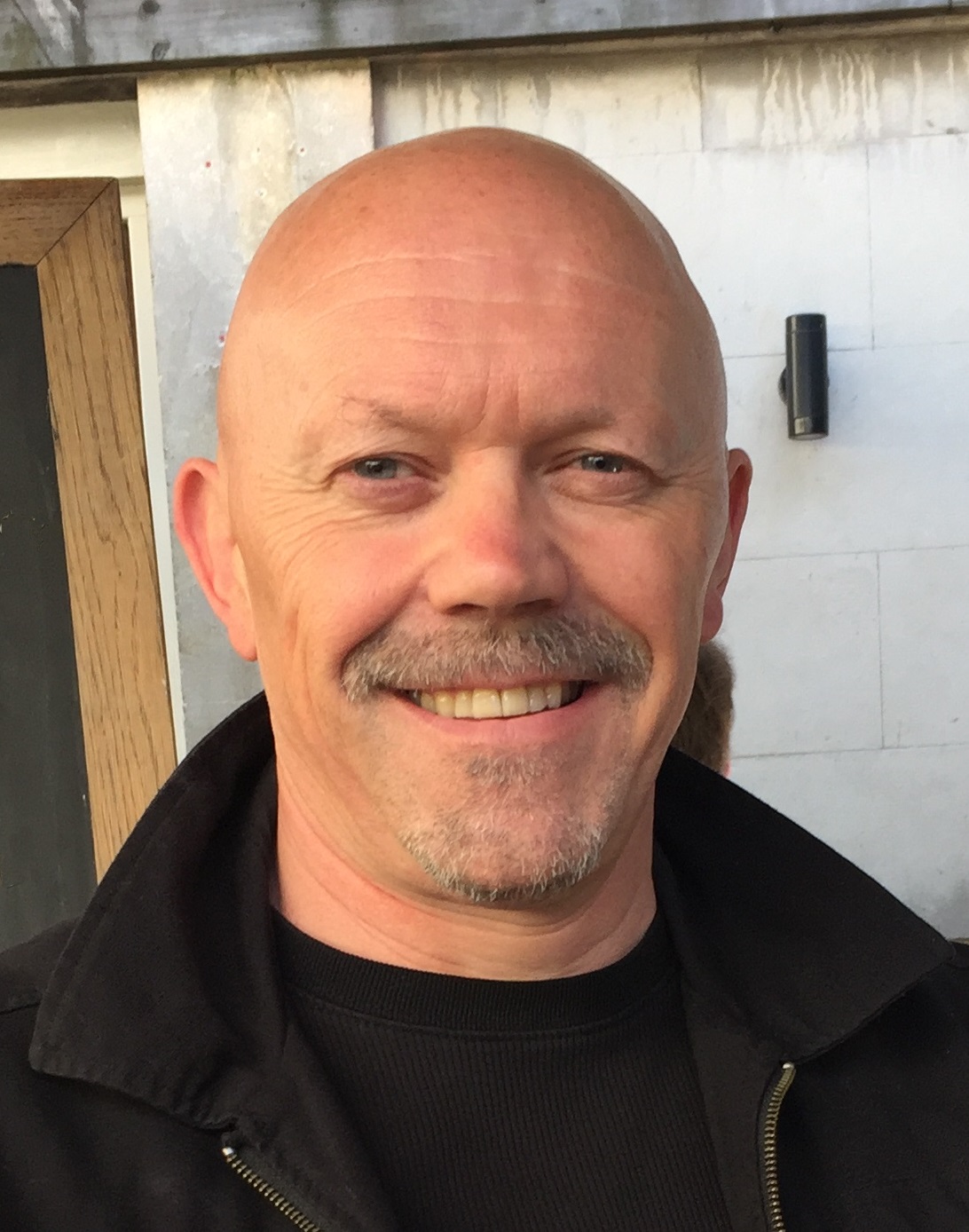 John Hawkhead
John HawkheadLiving in Bradford on Avon, United Kingdom
Contact the poet
-
Hawkins, George O
-
Hlaing, Su Wai
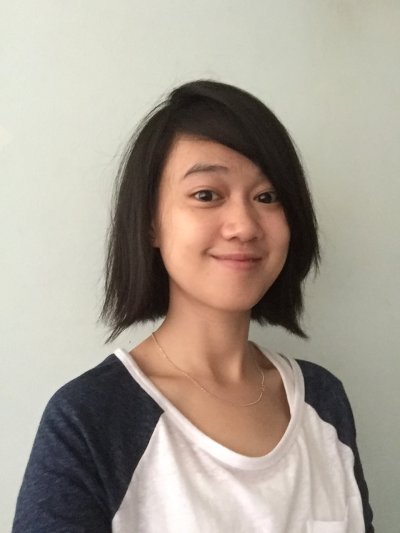 Su Wai Hlaing
Su Wai Hlaingwas born and brought up in Burma.
Since she was young, she has been inspired by many Burmese poets and enjoyed reciting the poems and shared them with her family and brother. She was introduced to Haiku by Roger Watson in 2017 and started writing them since then.Haiku blog: https://suwaihlainghaiku.blogspot.com/
-
Hodge, Steve
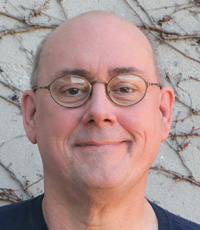 Steve Hodge
Steve HodgeBorn 1953 in the United States
Living in White Lake, Michigan, U.S.
Steve Hodge is the editor of Prune Juice, a Journal of Senryu, Kyoka, Haibun and Haiga. An award winning and anthologized poet, Steve’s work has appeared in many haiku publications, including Modern Haiku, Frogpond, The Heron’s Nest and others. -
Hoffman, Nick
Nick Hoffman
Born 1970 in Oakland County, Michigan, USA
Living in Cork, IrelandNick Hoffman grew up in Michigan, but moved to Dublin, Ireland, in 1995. He now lives in Cork, Ireland's second city. His work has appeared in several journals including Acorn, Modern Haiku, Frogpond, The Heron’s Nest, Shamrock, Prune Juice, Failed Haiku, Scifaikuest and Star*Line.
-
Iulian, Dan
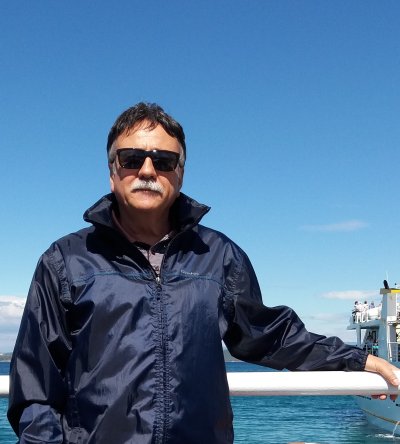 Dan Iulian
Dan IulianBorn: 1955, Obirsia Olt, Romania
Living in: Bucharest, Romania
Contact: dan_iulian09 (at) yahoo (dot) comDan Iulian (pseudonym of Iulian Ciupitu) is a retired engineer. He loves the arts, nature and travels. Since 2011, he meets the world of haiku and joins of the Romanian Kukai Group. Prizes for haiku in English, French, Italian and Romanian languages. Publications in country and abroad.
-
Jacobson, Roberta Beach
 Roberta Beach Jacobson
Roberta Beach JacobsonRoberta Beach Jacobson is drawn to the magic of words – poetry, puzzles, song lyrics, stand-up comic humor. As a student of tanshi (short poems), she strives to include humor whenever possible. Besides poetry, she writes greeting cards and flash fiction … anything to avoid a day job.
Born 1952 in Worcester, Massachusetts, USA
Residing in Indianola, Iowa, USA
Page 1 of 3
